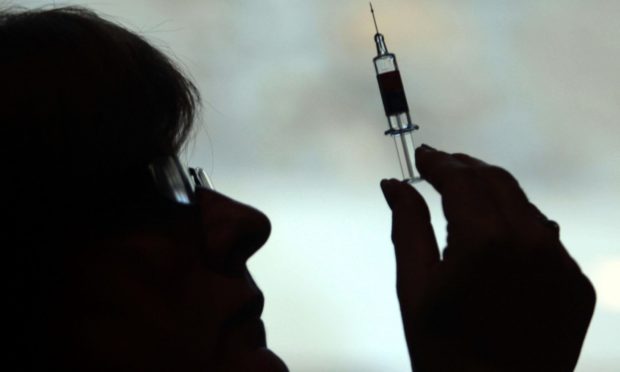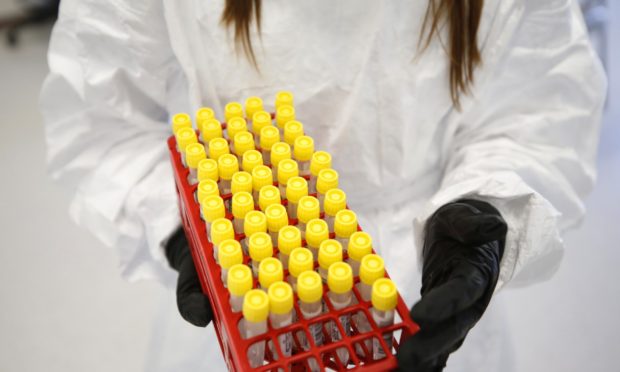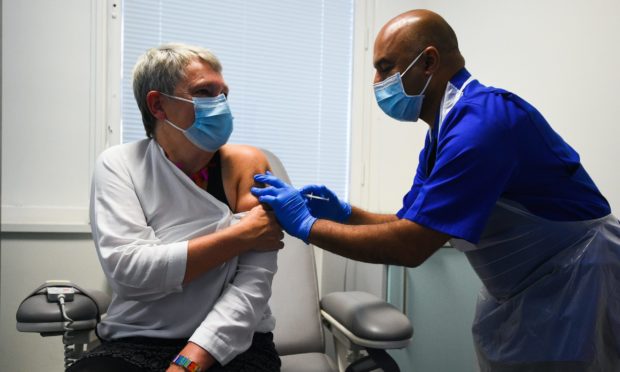Britain’s medical authorities approved the rollout of the Pfizer and BioNTech Covid-19 vaccine on Wednesday morning, paving the way for vaccination to start next week.
The jab has been shown in studies to be 95% effective and works in all age groups.
The UK has ordered 40 million doses of the vaccine, enough to vaccinate 20 million people with two doses, given 21 days apart.
Who is eligible for first phase of Covid vaccine rollout?
Around 10 million doses are expected to be available for use in the UK in the coming weeks for priority groups, including healthcare workers, with 800,000 doses arriving next week.
Top of the list for a dose will be care home residents and their carers, second all those 80 years and over along with frontline health and social care workers.
Who will the #CovidVaccine be available to first? Details here pic.twitter.com/EYPbloLaRz
— Dan O'Donoghue (@MrDanDonoghue) December 2, 2020
Next in line will be those 75 years of age and over, then all those 70 years of age and over and the clinically extremely vulnerable.
Fifth in line will be those aged 65 and over, then all individuals aged 16 to 64 years with underlying health conditions which put them at higher risk of serious disease and mortality.
Seventh in line will be those 60 years of age and over, then those 55 years of age and over and finally all those 50 years of age and over.
When will Covid vaccine be rolled out more widely?
There will be “three modes of delivery” of the vaccine, with hospitals, mass vaccination centres and GPs and pharmacists offering the jab to those most in need.
After the most in-need groups have been inoculated, the vaccine will then be rolled out to the wider public.

Health Secretary Matt Hancock said that he hoped “from Easter onwards, things are going to be better and we’re going to have a summer next year that everybody can enjoy”.
Professor Wei Shen Lim, of the Joint Committee on Vaccination and Immunisation (JCVI), struck a more cautious tone, saying: “It will the largest vaccination programme in the UK for decades. There will be all manner of operational flexibilities that will be required during the deployment of the vaccine.”
Is vaccine safe?
The Medicines and Healthcare products Regulatory Agency (MHRA) has approved the jab after “months of rigorous clinical trials and a thorough analysis of the data by experts”.
Dr June Raine, head of the regulator that approved the Pfizer and BioNTech vaccine, said no corners had been cut in assessing its safety.
The Medicines and Healthcare products Regulatory Agency (MHRA) chief told a Downing Street briefing: “The safety of the public will always come first.
“This recommendation has only been given by the MHRA following the most rigorous scientific assessment of every piece of data so that it meets the required strict standards of safety, of effectiveness and of quality.”

Prof Sir Munir Pirmohamed, the chair of Commission on Human Medicine Expert Working Group, added: “The data showed that this vaccine is 95% effective. It is effective within all the groups who were given the vaccine in the trial irrespective of age, sex, race or country they lived in.”
He said safety was similar to other vaccines and that any side effects were usually mild and lasted only a few days.
Will vaccine be compulsory to take?
No. Prof Wei Shen Lim said “there is no suggestion that the offer of vaccination should be compulsory”.
He added: “Whether somebody wants to have a vaccine or not is at the moment a voluntary thing.”
